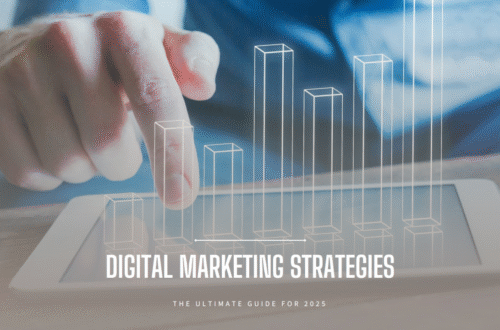Walk down any city street, scroll through any social feed, and you’ll witness it: a relentless barrage of marketing messages vying for your attention. Yet beneath this saturation lies a troubling reality—consumers have never been more distrustful of brands. A 2023 Edelman Trust Barometer revealed that 68% of people globally believe businesses prioritize profit over people, while only 42% trust brands to do what’s right. This isn’t just skepticism; it’s a crisis of connection. Marketing, once the bridge between companies and communities, has become a chasm. The culprit? A systemic failure of authenticity. Brands perform sincerity while consumers crave substance. The result is a broken dialogue where messages ricochet off armor-plated audiences. But a counter-movement is emerging—one that rejects performative marketing in favor of radical transparency and genuine relationship-building. This is the story of how marketing lost its soul and the hard road to redemption.
The Mirage of Authenticity: When Performance Replaces Substance
Modern marketing suffers from what psychologists call the “authenticity gap”—a chasm between projected identity and actual behavior. Brands craft meticulous personas: eco-friendly crusaders, community champions, innovation pioneers. Yet too often, these facades crumble under scrutiny.
Consider greenwashing. Companies like H&M launch “Conscious Collections” marketed with sustainability rhetoric while simultaneously producing fast-fashion garments destined for landfills. Their 2023 “Change Makers” campaign featured recycled materials but ignored that less than 1% of clothing is recycled into new clothes. Consumers notice these dissonances. When Volvo promoted electric vehicles as “zero-emission” while their supply chain relied on coal-powered factories, the backlash was swift. These aren’t marketing missteps; they’re betrayals of trust.
The problem runs deeper than deceptive claims. It’s structural. Marketing departments operate in silos, disconnected from product development, customer service, and corporate ethics. The social media team tweets about “customer obsession” while support agents handle frustrated callers with scripted indifference. The brand promises “innovation” while engineers struggle with outdated systems. This fragmentation creates what organizational theorists call “cognitive dissonance”—employees can’t authentically champion values the company doesn’t embody.
Worse, marketing has become an exercise in emotional pickpocketing. Brands weaponize social justice, mental health awareness, and community causes to sell products. Pepsi’s 2017 ad featuring Kendall Jenner handing a soda to police during a protest trivialized racial justice movements. Bud Light’s 2023 partnership with a transgender influencer sparked backlash not from inclusivity but from perceived opportunism—a sudden pivot after decades of marketing centered around frat culture. When brands co-opt movements without meaningful commitment, consumers smell exploitation.
The Trust Tax: How Inauthenticity Destroys Value
The cost of inauthentic marketing isn’t reputational—it’s financial. Brands perceived as genuine command premium pricing, loyalty, and advocacy. Those seen as inauthentic pay a “trust tax” in diminished returns.
Patagonia provides a compelling counter-narrative. Their “Don’t Buy This Jacket” campaign urged consumers to reduce consumption, aligning with their environmental ethos. The result? Sales surged 30% that year. Why? Patagonia’s actions matched their words: 1% of sales fund environmental groups, they repair garments for free, and they sued the federal government to protect public lands. Their marketing isn’t performance; it’s documentation of their identity.
Contrast this with Boeing. After the 737 MAX crashes, their marketing emphasized “safety first” while internal emails revealed engineers mocking regulators and cutting corners. The consequence? $2.5 billion in fines, a 20% stock drop, and irreparable trust erosion. When marketing promises safety but engineering prioritizes profits, the disconnect becomes catastrophic.
The data is unequivocal:
- 86% of consumers say authenticity influences brand loyalty (Stackla)
- 63% would buy from authentic brands over competitors (Boston Consulting Group)
- 70% lose trust in brands after inconsistent experiences (Salesforce)
Inauthenticity isn’t just unethical—it’s bad business. Yet most companies treat authenticity as a marketing tactic rather than an organizational imperative. They hire influencers to “humanize” brands while corporate policies remain dehumanizing. They launch purpose-driven campaigns while lobbying against regulations that would serve those purposes. This hypocrisy is the trust tax in action.
Beyond the Hashtag: Rebuilding Authentic Marketing from the Inside Out
Fixing broken marketing requires more than clever campaigns. It demands systemic redesign centered on three pillars:
Pillar 1: Values as Operations, Not Slogans
Authenticity begins when values move from plaques in the lobby to operational reality. Allbirds, the sustainable footwear company, embeds environmental metrics into every business decision. Their carbon footprint label appears on every product, calculated from raw materials to end-of-life. Marketing doesn’t claim sustainability; it explains how operations deliver it.
How to implement:
- Audit Alignment: Map marketing messages against actual policies. Where’s the gap?
- Involve All Departments: Product, HR, and finance should co-create value propositions.
- Transparent Reporting: Publish unvarnished data—environmental impact, labor practices, failures.
Pillar 2: Dialogue Over Monologue
Traditional marketing broadcasts; authentic marketing converses. Buffer, the social media tool, practices “radical transparency”: they share salaries, revenue data, and even strategic mistakes publicly. Their marketing isn’t about persuasion; it’s about inviting people into their journey.
Tactics for dialogue:
- Community Co-Creation: Involve customers in product development (like LEGO Ideas).
- Unfiltered Feedback: Publish reviews—positive and negative—without censorship.
- Employee Advocacy: Encourage staff to share honest experiences, not corporate talking points.
Pillar 3: Consistency Across Touchpoints
Authenticity fractures when experiences contradict promises. Apple succeeds partly because its ecosystem—hardware, software, retail, support—feels cohesive. The minimalist aesthetic in ads mirrors the clean design of products and the uncluttered layout of stores.
Achieving consistency:
- Journey Mapping: Identify every customer interaction point. Do they feel connected?
- Empower Frontlines: Give support teams autonomy to solve problems without scripts.
- Unified Language: Eliminate corporate jargon. Speak like humans, not press releases.
The Human Element: Marketing as Relationship, Not Transaction
At its core, inauthentic marketing dehumanizes both brands and audiences. It reduces complex organizations to caricatures and consumers to demographics. The antidote is rediscovering marketing’s roots: building relationships based on mutual respect.
Consider Localis, a community-owned grocery chain. Their marketing features real farmers, shelf-stockers, and shoppers sharing stories. No celebrities, no polished ads—just unscripted conversations about food, community, and shared values. Their growth isn’t driven by discounts but by belonging. Shoppers don’t just buy groceries; they participate in a local economy.
This relational approach requires vulnerability. Brands must admit flaws, embrace feedback, and evolve publicly. Microsoft’s turnaround under Satya Nadella exemplifies this. They shifted from “know-it-all” to “learn-it-all,” openly discussing past failures (Windows Phone, Zune) while focusing on cloud innovation. Marketing became less about selling products and more about enabling customer success.
The Future of Marketing: Courage Over Conformity
The next era of marketing will separate conformists from courageists. Conformists chase trends: metaverse activations, AI-generated content, viral TikToks. Courageists do the hard work of aligning identity with action. Key shifts are emerging:
From Campaigns to Commitments: Instead of short-term purpose pushes, brands like Patagonia make activism permanent. Their “Action Works” platform connects customers with environmental groups—turning marketing into mobilization.
From Influencers to Advocates: Rather than paying celebrities for endorsements, companies like Lush empower employees and customers to become advocates. Their staff aren’t spokespeople; they’re true believers who use products daily.
From Data Points to People: As privacy regulations limit tracking, brands must rebuild relationships based on consent, not surveillance. DuckDuckGo’s marketing centers on privacy protection—turning a limitation into a core value proposition.
From Control to Co-Creation: Forward-thinking brands invite customers into the creative process. Adobe’s marketing features user-generated art made with their tools, celebrating creativity over corporate messaging.
The Courage to Be Real
Rebuilding authentic marketing isn’t easy. It requires:
- Leadership Conviction: CEOs must prioritize long-term trust over quarterly earnings.
- Organizational Humility: Admitting mistakes and evolving publicly.
- Creative Courage: Rejecting formulaic campaigns for honest storytelling.
- Customer Respect: Treating audiences as partners, not targets.
The rewards justify the effort. Authentic brands enjoy deeper loyalty, higher lifetime value, and resilience during crises. When Tylenol faced tampering in 1982, they recalled 31 million bottles at $100M cost. Their transparency turned a crisis into a trust-building moment that still defines the brand.
Conclusion: Marketing’s Moral Reckoning
Marketing stands at a crossroads. One path continues the cycle of performance, exploitation, and eroding trust. The other embraces authenticity as a practice, not a posture. This path demands courage—the courage to align actions with words, to prioritize relationships over transactions, to be human in a digital world.
The brands that thrive will be those that understand: authenticity isn’t a marketing strategy. It’s the foundation of sustainable business. When marketing becomes an honest reflection of an organization’s character, it stops being a broken system and starts being what it should always have been: a bridge between companies and communities, built on trust, respect, and shared purpose.
The question isn’t whether your brand can afford to be authentic. It’s whether you can afford not to be. In an age of cynicism, authenticity isn’t just good marketing—it’s the only marketing that matters. The rest is just noise.




